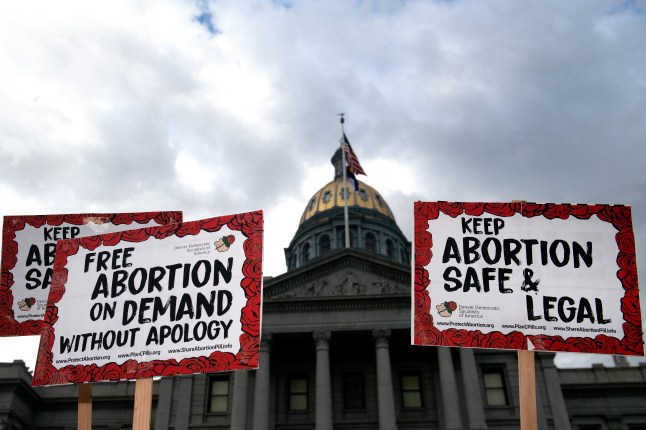
A US state has introduced a bill allowing executions for abortions in the latest assault on women’s rights.
Republican lawmakers in South Carolina are pushing the doctrine of ‘fetal personhood,’ which would grant fetuses at any stage of development the exact same legal rights and protections as people.
South Carolina currently has a six-week abortion ban in effect. If passed, this bill would effectively enact a total abortion ban.
This would make abortion at any stage of pregnancy equivalent to murder under state law – and a person who undergoes the procedure could face life in prison or the death penalty as a result.
The bill provides exceptions for unintentional deaths resulting from life-saving procedures for the mother or spontaneous miscarriages.
But it is all too often in the US that these types of exceptions are real in name only.
The move in South Carolina reflects a much broader trend among some Republican-led states to move to a near-total ban following the Supreme Court decision to overturn Roe v Wade in 2022.
State representative Rob Harris pre-filed the bill, South Carolina Prenatal Equal Protection Act earlier this month.
How have abortion laws changed in the US since Roe v Wade was overturned?
The overturning of Roe v Wade in June 2022 left the regulation of abortion laws to states themselves.
Here is a simple breakdown as to how dramatically the legal landscape has changes since then:
States banning or near-banning abortion
As of now, around 14 states have near-total abortion bans. Abortion is often banned except in limited cases, such as when the mother’s life is in danger. Some states, like South Carolina, restrict the procedure after six weeks of pregnancy.
States protecting abortion rights
Several states like California and New York have passed laws to protect abortion access.
Legal risks
People in need of abortions and medics face potential legal penalties in states where the procedure is banned.
Travel to access abortion
People in states with bans are forced to travel to others where abortion is legal, straining resources in those areas.
It will be introduced in the judiciary committee when the legislative session begins in January.
More Trending
So-called fetal personhood laws grant legal rights to fetuses, embryos, or fertilised eggs, equating them with born individuals.
As of September, 17 US states have established fetal personhood through legislation or judicial decisions, according to Pregnancy Justice.
Already in Georgia, a fetus qualifies for tax credits and child support, and is to be included in population counts and redistricting.
Get in touch with our news team by emailing us at webnews@metro.co.uk.
For more stories like this, check our news page.
MORE: Crisps recalled for ‘undeclared milk’ that can cause life-threatening allergic reaction
MORE: Health warning as latest study reveals cooking oil linked to colon cancer

































